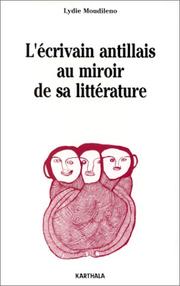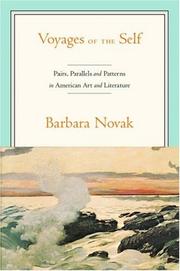| Listing 1 - 9 of 9 |
Sort by
|
Book
ISBN: 3846745782 Year: 2008 Publisher: Paderborn : Wilhelm Fink Verlag,
Abstract | Keywords | Export | Availability | Bookmark
 Loading...
Loading...Choose an application
- Reference Manager
- EndNote
- RefWorks (Direct export to RefWorks)
Die Autobiographieforschung tut sich bis heute schwer damit, in einen produktiven Dialog mit der Medienwissenschaft zu treten. Bislang sah sie in der Schrift (graphe) ein bloßes Instrument, um ein bereits gegebenes Selbst (autos) und seine Lebensge-schichte (bios) darzustellen. Mit dem Konzept der Automedialität wird diese Auffassung in Rich-tung auf eine medial und kultu-rell bestimmte Praxis der Subjek-tivierung überschritten. Der erste Teil des Bandes be-schäftigt sich mit der Rolle der Medialität in schriftgestützten Selbstdarstellungen. Im zweiten Teil wird der Frage nachgegan-gen, welche neuen Selbstprakti-ken sich im Umgang mit visuellen und elektronischen Medien her-ausgebildet haben. Der dritte Teil erkundet die Wechselbeziehun-gen zwischen Subjektkonstitution und Wissensgeschichte.
Book
ISBN: 9788370725303 Year: 2009 Publisher: Warszawa Wydawnictwo Uniwersytetu Kardynała Stefana Wyszyńskiego
Abstract | Keywords | Export | Availability | Bookmark
 Loading...
Loading...Choose an application
- Reference Manager
- EndNote
- RefWorks (Direct export to RefWorks)
Book
ISBN: 1283377233 9786613377234 0857289438 9380601042 Year: 2011 Publisher: London : Anthem Press,
Abstract | Keywords | Export | Availability | Bookmark
 Loading...
Loading...Choose an application
- Reference Manager
- EndNote
- RefWorks (Direct export to RefWorks)
This study explores the dialogue between the biographical and authorial selves of the writer Ruskin Bond, whose liminal subjectivity is informed by the fantasies of space and time.
Anglo-Indian literature --- Self-perception in literature. --- History and criticism. --- Bond, Ruskin --- Pāṇṭ, Raskin̲ --- بونڈ، رسكن --- Criticism and interpretation.
Book
ISBN: 9780190649364 0190649364 0190649380 0190649372 0190649399 Year: 2018 Publisher: New York, N.Y. Oxford University Press
Abstract | Keywords | Export | Availability | Bookmark
 Loading...
Loading...Choose an application
- Reference Manager
- EndNote
- RefWorks (Direct export to RefWorks)
" Against the backdrop of the polarized debate on the ethical significance of storytelling, Hanna Meretoja's The Ethics of Storytelling: Narrative Hermeneutics, History, and the Possible develops a nuanced framework for exploring the ethical complexity of the roles narratives play in our lives. Focusing on how narratives enlarge and diminish the spaces of possibilities in which we act, think, and re-imagine the world together with others, this book proposes a theoretical-analytical framework for engaging with both the ethical potential and risks of storytelling. Further, it elaborates a narrative hermeneutics that treats narratives as culturally mediated practices of (re)interpreting experiences and articulates how narratives can be oppressive, empowering, or both. It also argues that the relationship between narrative unconscious and narrative imagination shapes our sense of the possible. "This book provides a theoretical-analytical framework for a hermeneutic narrative ethics, which articulates the ethical potential and risks of narrative practices. It analyzes how narratives shape our sense of the possible by enlarging and diminishing the dialogic spaces of possibilities in which we act, think, and re-imagine the world"--
Storytelling. --- Narration (Rhetoric) --- Self-perception in literature. --- Social perception in literature. --- Awareness in literature. --- Imagination in literature. --- Narrative (Rhetoric) --- Narrative writing --- Story-telling --- Telling of stories --- Moral and ethical aspects. --- Psychological aspects. --- Social aspects. --- Storytelling --- Self-perception in literature --- Social perception in literature --- Awareness in literature --- Imagination in literature --- Moral and ethical aspects --- Psychological aspects --- Social aspects --- Rhetoric --- Discourse analysis, Narrative --- Narratees (Rhetoric) --- Oral interpretation --- Children's stories --- Folklore --- Oral interpretation of fiction --- Performance --- Erzähltheorie. --- Ethik. --- Hermeneutik. --- LITERARY CRITICISM / Semiotics & Theory. --- Literatur. --- PHILOSOPHY / Mind & Body. --- PSYCHOLOGY / Social Psychology. --- Wahrnehmung. --- Narration (Rhetoric) - Moral and ethical aspects --- Narration (Rhetoric) - Psychological aspects --- Narration (Rhetoric) - Social aspects --- Philosophy / mind & body. --- Literature
Book
ISBN: 9789004323629 9004323678 9789004323674 9004323627 Year: 2016 Publisher: Leiden Boston
Abstract | Keywords | Export | Availability | Bookmark
 Loading...
Loading...Choose an application
- Reference Manager
- EndNote
- RefWorks (Direct export to RefWorks)
Recent narrative fiction and film increasingly exploit, explore and thematize the embodied mind, revealing the tenacity of a certain brand of humanism. The presence of narratively based concepts of personal identity even in texts which explore posthuman possibilities is strong proof that our basic understanding of what it means to be human has, despite appearances, remained mostly unchanged. This is so even though our perception of time has been greatly modified by the same technology which both interrupts and allows for the rearrangement of our experience of time at a rate and a level of ease which, until recently, had never been possible. Basing his views on a long line of philosophers and literary theorists such as Paul Ricoeur, Daniel Dennett and Francisco Varela, Escobar maintains in The Persistence of the Human that narrative plays an essential role in the process of constituting and maintaining a sense of self. It is narrative’s effect on the embodied mind which gives it such force. Narrative projects us into possible spaces, shaping a temporary corporeality termed the “meta-body,” a hybrid shared by the lived body and an imagined corporeal sense. The meta-body is a secondary embodiment that we inhabit for however long our narrative immersion lasts – something which, in today’s world, may be a question of milliseconds or hours. The more agreeable the meta-body is, the less happy we are upon being abruptly removed from it, though the return is essential. We want to be able to slip back and forth between this secondary embodiment and that of our lived body; each move entails both forgetting and remembering different subject positions (loss and recuperation being salient themes in the works which highlight this process). The negotiation of the transfer between these states is shaped by culture and technology and this is something which is precisely in flux now as multiple, ephemeral narrative immersion experiences are created by the different screens we come into contact with.
Identity (Psychology) in literature. --- Identity (Psychology) in motion pictures. --- Human body in literature. --- Self-perception in motion pictures. --- Self-perception in literature. --- Human body in motion pictures. --- Body, Human, in motion pictures --- Motion pictures --- Body, Human, in literature --- Human figure in literature

ISBN: 2865377415 Year: 1997 Publisher: Paris Karthala
Abstract | Keywords | Export | Availability | Bookmark
 Loading...
Loading...Choose an application
- Reference Manager
- EndNote
- RefWorks (Direct export to RefWorks)
Authors in literature --- Creoles in literature --- Guadeloupe fiction (French) --- Identity (Philosophical concept) in literature --- Martinican fiction (French) --- Self-perception in literature --- Identity in literature --- French fiction --- Martinique fiction (French) --- Martinican literature (French) --- Guadeloupe literature (French) --- History and criticism --- Fiction --- French literature (outside France) --- anno 1980-1989 --- anno 1990-1999 --- Caribbean area
Book
ISBN: 1438427395 1441622667 9781441622662 1438427271 9781438427270 9781438427393 Year: 2009 Publisher: Albany : SUNY Press,
Abstract | Keywords | Export | Availability | Bookmark
 Loading...
Loading...Choose an application
- Reference Manager
- EndNote
- RefWorks (Direct export to RefWorks)
"How does physical, emotional, and sexual abuse shape women's perceptions of their bodies and identities? How are women's psyches affected by the sexual, racial, and cultural denigration that occurs when women's bodies are represented as defective, spoiled, damaged, or dirtied? Embodied Shame skillfully explores these questions in the context of recent writings by North American women, contributing to work in shame theory and to feminist analyses of the intersections of theories of the body, affect, emotions, narrative, and trauma. By examining popular contemporary fictional - and nonfictional - texts, including Alice Munro's Lives of Girls and Women, Dorothy Allison's Bastard Out of Carolina, Toni Morrison's The Bluest Eye, Edwidge Danticat's Breath, Eyes, Memory, and Lucy Grealy's Autobiography of a Face, J. Brooks Bouson illuminates how deeply entrenched bodily shame continues to operate in contemporary culture, even as we celebrate the supposed freeing of the female body from the social and cultural constraints that have long bound it."--BOOK JACKET.
American literature --- Canadian literature --- English literature --- Women in literature. --- Shame in literature. --- Abused women in literature. --- Psychic trauma in literature. --- Body image in literature. --- Self-perception in literature. --- Body image in women. --- Self-perception in women. --- Women --- Woman (Christian theology) in literature --- Women in drama --- Women in poetry --- Agrarians (Group of writers) --- Women authors --- History and criticism. --- Psychology --- Abused women in literature --- Body image in literature --- Body image in women --- Psychic trauma in literature --- Self-perception in literature --- Self-perception in women --- Shame in literature --- Women in literature --- 820 "19" --- 82.04 --- British literature --- Inklings (Group of writers) --- Nonsense Club (Group of writers) --- Order of the Fancy (Group of writers) --- Canadian literature (English) --- 820 "19" Engelse literatuur--20e eeuw. Periode 1900-1999 --- Engelse literatuur--20e eeuw. Periode 1900-1999 --- 82.04 Literaire thema's --- Literaire thema's --- Women authors&delete& --- History and criticism
Book
ISBN: 2852034646 9782852034648 2852034654 9782852034655 Year: 1995 Volume: 8 Publisher: Paris Champion
Abstract | Keywords | Export | Availability | Bookmark
 Loading...
Loading...Choose an application
- Reference Manager
- EndNote
- RefWorks (Direct export to RefWorks)
Conscience de soi dans la littérature
---
Imitatie in de literatuur
---
Imitation dans la littérature
---
Imitation in literature
---
Pléiade
---
Self-consciousness in literature
---
Zelfbewustzijn in de literatuur
---
Pléiade.
---
French poetry
---
Latin poetry, Medieval and modern
---
Self-perception in literature.
---
Imitation in literature.
---
Poésie latine médiévale et moderne
---
Conscience de soi dans la littérature.
---
Imitation dans la littérature.
---
Gedichten.
---
Latijn.
---
Literatuurtheorie.
---
Poésie française
---
Selbstreflexion

ISBN: 0195305906 9780195305906 Year: 2007 Publisher: New York Oxford university press
Abstract | Keywords | Export | Availability | Bookmark
 Loading...
Loading...Choose an application
- Reference Manager
- EndNote
- RefWorks (Direct export to RefWorks)
Auto-perception dans l'art --- Auto-perception dans la littérature --- Self-perception in art --- Self-perception in literature --- Zelfperceptie in kunst --- Zelfperceptie in literatuur --- American literature --- Art and literature --- Painting, American --- American painting --- Paintings, American --- Literature and art --- Literature and painting --- Literature and sculpture --- Painting and literature --- Sculpture and literature --- Aesthetics --- Literature --- History and criticism --- History --- United States --- Copley, John Singleton --- Criticism and interpretation --- Edwards, Jonathan --- Emerson, Ralph Waldo --- Lane, Fitz Hugh --- Thoreau, Henry David --- Whitman, Walt --- Church, Frederick Edwin --- Homer, Winslow --- James, William --- Dickinson, Emily Elizabeth --- Ryder, Albert Pinkham --- Pollock, Jackson --- Olson, Charles
| Listing 1 - 9 of 9 |
Sort by
|

 Search
Search Feedback
Feedback About UniCat
About UniCat  Help
Help News
News